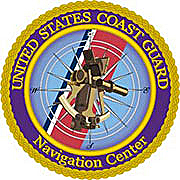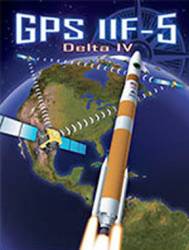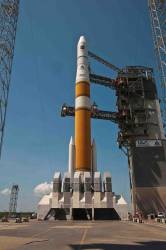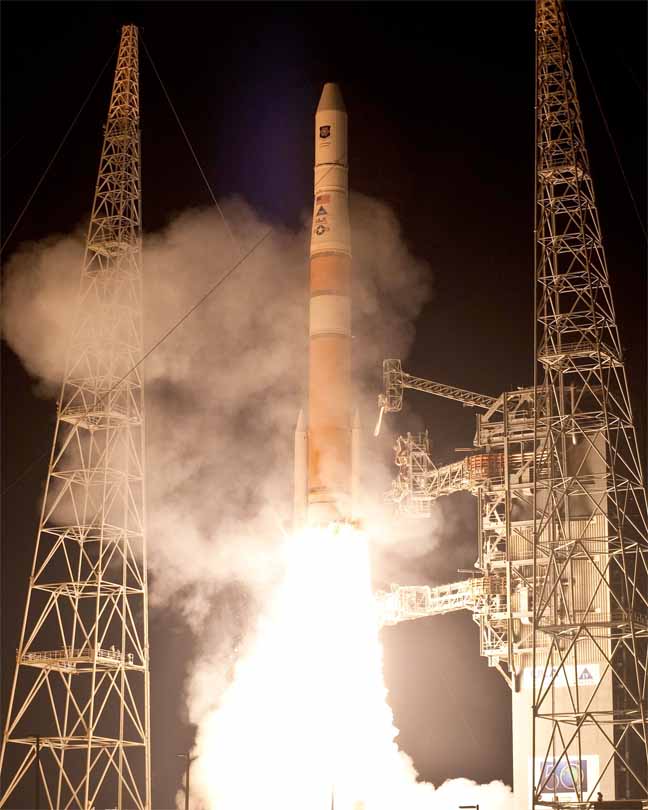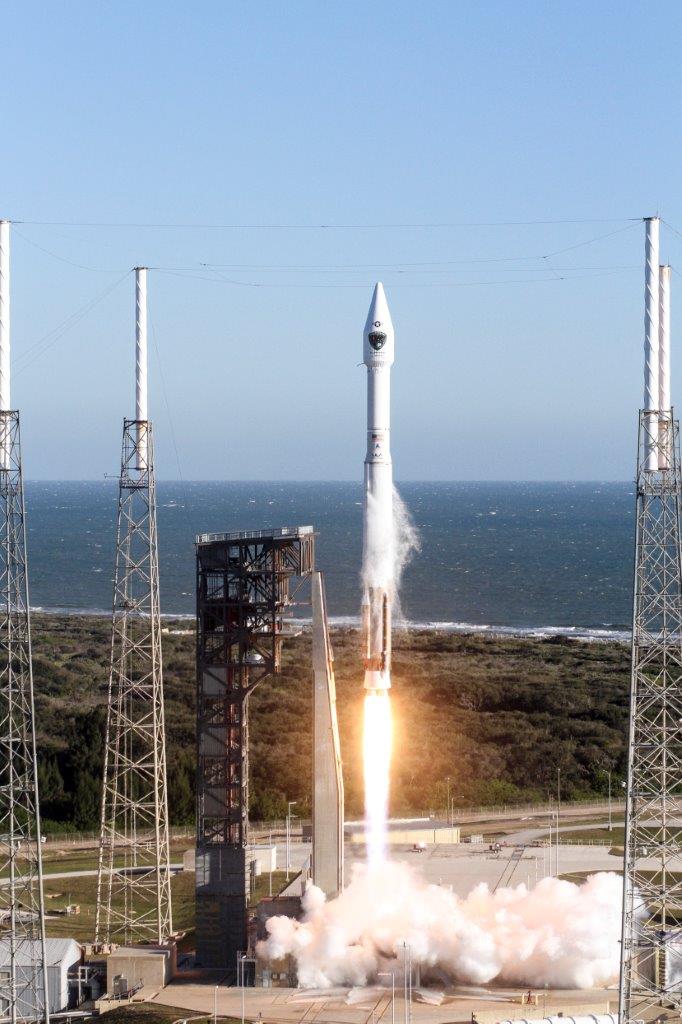 The 12th and final GPS Block IIF satellite lifts off from Cape Canaveral Air Force Station, Florida. United Launch Alliance photo
The 12th and final GPS Block IIF satellite lifts off from Cape Canaveral Air Force Station, Florida. United Launch Alliance photoThe U.S. Air Force and its mission partners successfully launched the 12th Boeing-built GPS IIF satellite aboard a United Launch Alliance Atlas V Evolved Expendable Launch Vehicle (EELV) from Space Launch Complex 41, Cape Canaveral Air Force Station, Florida, at 8:38 a.m. EST today (February 5, 2016).
The U.S. Air Force and its mission partners successfully launched the 12th Boeing-built GPS IIF satellite aboard a United Launch Alliance Atlas V Evolved Expendable Launch Vehicle (EELV) from Space Launch Complex 41, Cape Canaveral Air Force Station, Florida, at 8:38 a.m. EST today (February 5, 2016).
"Today’s launch is a significant achievement in the history of GPS, as we launch the last of the GPS IIF satellites to be delivered on-orbit," said Lt. Gen. Samuel Greaves, Space and Missile Systems Center commander and Air Force program executive officer for space. Designated space vehicle number (SVN) 70 and transmitting pseudorandom noise (PRN) code 04, the spacecraft was also the 50th launch of GPS satellite delivered on orbit during the 41-year-old program, Greaves noted.
According to Greaves, this mission demonstrates the Air Force’s continued intent to deliver pre-eminent space-based positioning, navigation and timing service to users around the globe. The next GPS launch — of the first GPS Block III satellite — is not expected to take place for more than a year.
The Boeing-built GPS IIF satellites provide improved accuracy through advanced atomic clocks, a longer design life than previous GPS satellites, and a new operational third civil signal (L5) that benefits commercial aviation and safety-of-life applications. It also continues to deploy the modernized capabilities that began with the GPS IIR-M satellites, including a more robust military signal.

